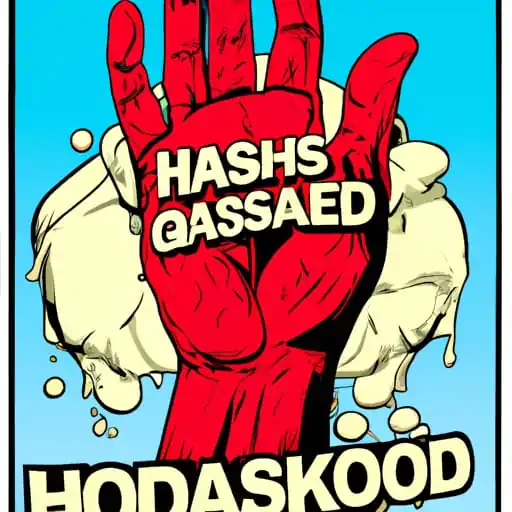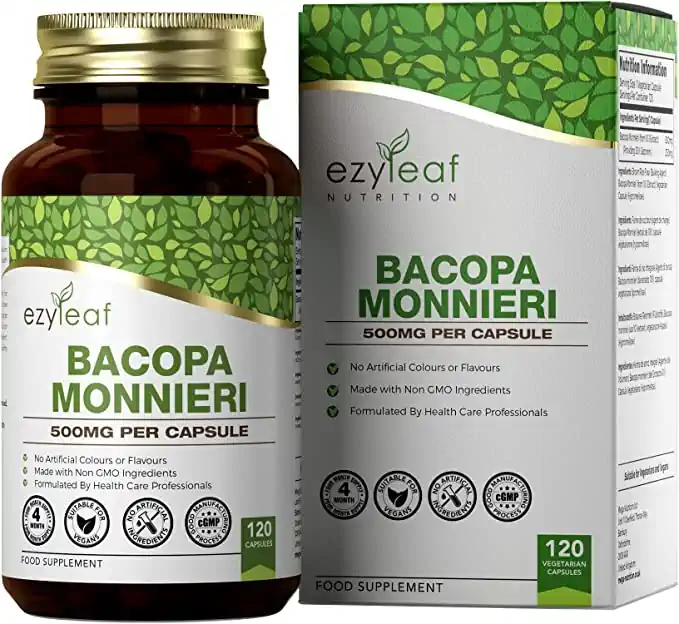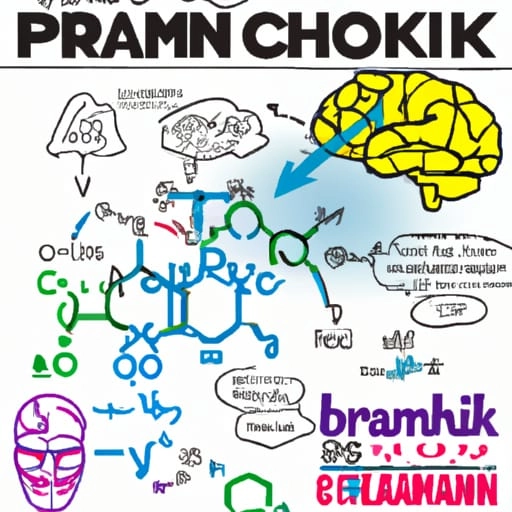10 Best Nootropics For OCD (Obsessive Compulsive Disorder)

Let’s Discuss the Best Nootropics for Obsessive-Compulsive Disorder
Obsessive compulsive disorder (OCD) is a mental health disorder that causes people to have intrusive, distressing thoughts and fears. OCD generates anxiety, but is distinct from such conditions as generalized anxiety disorder. It is treated with cognitive behavioral therapy and SSRIs — the most common antidepressant drugs.
However, standard medicine is often unsuccessful at treating the symptoms of obsessive-compulsive disorder and so people are turning to alternative medicine.
One area they are turning to is supplementation with nootropics to remedy the symptoms of OCD.
Obsessive-compulsive disorder can severely restrict a person’s life, and nootropics are considered to be one of the most promising treatments out there. This blog discusses the 10 best nootropics for treating OCD, based on user feedback and scientific studies. Hopefully, by reading this blog, you’ll be better equipped to find the right nootropic for your needs and start enjoying better mental health!
Because OCD symptoms are worsened by stress and anxiety, OCD treatment has focused on reducing anxiety, or by looking at the neurotransmitters responsible for anxiety pathways in the brain.
Treatment with SSRs (Selective Serotonin Reuptake Inhibitors) like fluoxetine that your doctor will prescribe increases serotonin levels and so much OCD treatment of OCD symptoms has also looked at which nootropic improves serotonin levels or GABA levels.
They also work by blocking glutamate pathways, and glutamate is the excitatory neurotransmitter (the accelerator if you like) versus GABA, which is the calming neurotransmitter (the brake). This should lead to a relaxation effect.

7 Nootropics You Can Try For OCD
OCD is a serious mental disorder that can be debilitating. Fortunately, there are many nootropics that can help treat OCD. Each supplement has its own set of benefits and side effects, so be sure to research them before using them. Nootropics aren’t approved by the FDA for use in treatment of mental illness.
You might also consider probiotics. Though not strictly nootropics, probiotics are microorganisms that are thought to improve the diversity of the microflora in the gut. They can also improve a person’s mental health. A 2015 study, for example, found that probiotics help lower the stress hormone cortisol, which is found in higher levels in people with OCD.
Again, thought not strictly nootropics, vitamins seem to have a role in OCD symptoms. OCD treatment therefore could include vitamins. One study showed that people who just got a diagnosis of OCD have lower levels of vitamin D than people who don’t have obsessive-compulsive disorder. Vitamin D may also have something to do with how OCD develops and may be linked to how bad the disorder is. However, knowledge is incomplete.
Let’s get back to the best nootropics for OCD.
As we discuss each of these nootropics we see that many claim their effectiveness is due to them increasing levels of the neurotransmitter serotonin, or the neurotransmitter GABA, or blocking glutamate. You might be forgiven for thinking that more is better, so just load up as possible for maximum happiness. More GABA! More serotonin!
However, you should be cautious and informed about everything you put in your body.
The relaxing neurotransmitter GABA can have unwanted effects if you take too much. Too much GABA can make you feel more anxious, short of breath, numb around your mouth, and tingly in your arms and legs.
When you first take GABA, you may feel sleepy or dizzy (so don’t take it before driving), and some people may get hives or a rash on their skin.
If you take too many medications, herbal supplements and nootropics that increase serotonin, you can get the rare, but potentially fatal condition known as serotonin syndrome, so be aware of which ones increase serotonin, and don’t use too many, or too high doses.
Serotonin Syndrome Symptoms
Symptoms usually start within a few hours of taking a new drug (or nootropic) that affects serotonin levels or increasing the dose of a drug you are already taking.
However, it is common for someone to feel sick within 24 hours of taking a serotonin-boosting drug or product for the first time, adding it to their routine, or increasing the amount they take. This isn’t serotonin syndrome, which will cause you to feel extremely unwell.
Symptoms include confusion, agitation, vomiting, and restlessness among the symptoms. If severe, this syndrome can be deadly and requires medical intervention.If you feel seriously unwell after increasing or changing serotonin enhancing supplements below, seek urgent medical treatment.
Other Cautions
Be aware that most of the benefits below are at worst theoretical, or at best with limited clinical evidence. They do not have the wealth of clinical evidence in the way that standard antidepressants like SSRis have been. They have not been rigorously checked for safety. There are few nootropics that have been subject to a placebo-controlled trial or a systematic review. Their enthusiasts might claim great things for them, but evidence might be thin. After saying that, even with SSRis, the reaction and benefit for each person is different, depending on their biology. The best way, in. my opinion, is to experiment in an informed and safe way, and see what works for you.
Like with standard pharmaceuticals, dosages are small, usually in milligrams (mg) rather than grams (g). It goes without saying that you should seek high-quality nootropics from reputable companies.

The 10 Best Brain Nootropics For OCD
1. L-Theanine
L-theanine is an amino acid that is chemically similar to the neurotransmitter glutamate. The human body does not generate this chemical, and it is not essential for human life. L-theanine is naturally found in green tea, black tea, and certain types of mushrooms.
L-theanine competes with glutamate for the same receptors and can cross the blood-brain barrier to have its relaxing effect by taking up the receptors that the excitatory neurotransmitter glutamate would use, thus blocking the stimulating effect and making you relax instead.
If you mix L-theanine with caffeine, it may help you concentrate and focus. A small study found that giving a group of young adults 97 milligrams (mg) of L-theanine and 40 mg of caffeine helped them focus better.
It is also said to improve memory and cognition. Studies have claimed that around 8 weeks of taking l-theanine appears to improve depression.
2. Eicosapentaenoic acid (EPA)
EPA is a fatty acid. EPA is obtained by eating fish but can also be taken as a supplement of Omega-3 or fish oil.
EPA has been looked into for several mental health problems. As with St. John’s Wort, the most studies have been done to see if EPA can help with depression. Some studies have shown that it can, but overall, the results have been mixed.
It’s not clear how EPA and omega-3 fatty acids work, but they may affect how neurons talk to each other or help to reduce inflammation.
So far, only one study has looked at EPA and OCD. People with obsessive-compulsive disorder were given an SSRI pharmacotherapy either 2 grams of EPA or a placebo. In this study, both the EPA group and the placebo group got better, which shows that the EPA treatment didn’t help significantly.
But there were only 11 people in this one study, so more research is needed to come to strong conclusions. Most of the time, EPA’s side effects are mild, but it can cause heartburn, nausea, and diarrhoea.
In short, there is no clear evidence that EPA helps with OCD. There is some evidence that it helps with major depressive disorder, and people with both conditions may be able to use it.
3 Inositol
Inositol is also called Vitamin B8, even though it is not a B vitamin. It is found naturally in plants and animals, or it can be made by humans. It can be found in oranges, cantaloupe, bananas, wheat germ, brewer’s yeast, liver, brown rice, oat flakes, nuts, raisins, and unrefined molasses, among other foods. It is important for making new cells, sending nerve signals, and moving fats around in the body. Inositol may change how the neurotransmitters serotonin and GABA work.
Myo-inositol is the precursor of inositol-triphosphate, which regulates numerous hormones.
Inositol is a nutrient that helps the brain stay healthy, relax, and sleep well. Researchers have found that it can help reduce anxiety, depression, and obsessive thoughts and behaviours. When it was given to people with OCD in a study done in 1996, their scores on the Yale-Brown Obsessive Compulsive Scale were much lower.
In studies, there have been no known cases of drugs interacting with each other. Some people may feel bloated after taking it, but it is well tolerated and thought to be safe.
Inositol might help mental conditions like panic disorder, depression, and obsessive-compulsive disorder by keeping certain chemicals in the body in balance. It could also improve how well insulin works.
People take inositol to treat metabolic syndrome, polycystic ovary syndrome (PCOS), and to lower the risk of giving birth early. It is also used to treat insomnia, bipolar disorder, post-traumatic stress disorder (PTSD), and many other conditions for which there is no good scientific evidence.
Inositol levels in cerebrospinal fluid have been found to be lower in people who are depressed.
A controlled double-blind study was done with 28 depressed people who took 12 g every day for four weeks.
At week 4, the Hamilton Depression Scale showed that inositol was better overall than the placebo. There were no negative side effects on the blood, kidneys, or liver.
Compared to placebo, inositol made a big difference in how often and how bad panic attacks and agoraphobia were.
There were few side effects.
Thirteen people with OCD took either 18 g of inositol or a placebo for six weeks.
Compared to placebo, the amount of OCD symptoms decreased by a lot when people took inositol.
4 Glycine
Glycine boosts serotonin synthesis, the “feel-good” hormone. It breaks down into sarcosine (amongst other metabolites) which is used to treat depression, schizophrenia and as a brain enhancer. Based on the results of a single small study, sarcosine may make OCD symptoms less severe. Some people with OCD, especially those who have never had treatment before, can feel better quickly when they take sarcosine.
Sarcosine is derived from glycine, which serves as the primary building block of other important proteins and the protein collagen, that provides structure to the bones, skin, muscles, and connective tissues. It also plays a part in the transmission of nerve signals and the removal of toxins from the body.
It has been shown to be safe as a dietary supplement, although a balanced and diverse diet will normally give the required levels of glycine the body needs.
3 g of glycine a day before sleep has been reported to improve sleep quality and lessen feelings of weariness during the day in those with insomnia.
Glycine facilitates neuron and neurotransmitter activity. It aids in the detoxification process, promotes cellular vitality, and promotes gut and brain health, all of which are crucial aspects of OCD.
It is produced in small amounts by the human body, but it can also be obtained through diet and dietary supplements. The largest concentrations of glycine are found in collagen, gelatin, and high-protein foods, as well as bone broth.
Glycine is involved in the transmission of chemical signals in the brain, serving both inhibitory and excitatory roles in the central nervous system (CNS). Glycine functions as an inhibitory neurotransmitter with other amino acids, notably taurine and gamma-aminobutyric acid GABA.
Additionally, it binds to the NMDA receptor, which is an excitatory glutamate receptor site, blocking the stimulating effect of glutamate, and providing a calming effect. Studies suggests that it may be an effective supplement for OCD sufferers.
5 Zinc
Zinc is a trace antioxidant that is needed for many important body functions. Iron, magnesium, and zinc levels are usually lower than normal in people with OCD, while manganese and calcium levels are usually higher than normal. This shows that a good balance of minerals is important for OCD.
Zinc can be found in the brain, pineal gland, hippocampus, and cerebral cortex.
More and more evidence suggests that a lack of zinc could be a trait marker of a mood disorder.
Zinc deficiency was said to cause depression, while taking this mineral as a supplement improved both mood and brain function.
In recent years, many studies have shown that zinc may be a key neuromodulator in the balance between glutamate’s stimulating effects and GABA’s calming effects.
In a randomised, placebo-controlled clinical trial, one group got fluoxetine with zinc and the other group got fluoxetine with a sugar pill. Both groups were given their treatments for 8 weeks. This study found that the zinc group got better faster than the placebo group.
Many zinc supplements come as zinc plus magnesium, another trace mineral. Magnesium stops glutamate from working in NMDA receptors, which stops glutamate from making cells excited. If you don’t have enough magnesium in your body, only a few of your NMDA receptors are blocked. This could cause anxiety. Because of this, magnesium could help treat and prevent OCD.
Taking a supplement with magnesium and zinc together makes sense and is often no greater cost.
6 N-Acetylcysteine (NAC)
L-cysteine, an amino acid, is the source of N-acetyl cysteine (NAC). NAC is an FDA-approved medication with many applications.
The antioxidant N-acetyl cysteine may help to prevent cancer. It is a medication that medical professionals use to treat paracetamol (Tylenol) intoxication. It functions by binding the toxic acetaminophen forms produced in the liver.
NAC is frequently used by people to treat cough and other lung diseases. Additionally, it is used to treat the flu, dry eye, and numerous other ailments, but many of these applications lack strong scientific backing.
The US FDA has declared that it is prohibited for dietary supplements to contain NAC as it is technically an approved medicine, even though many dietary supplement products contain it. The FDA is, however, considering revising this position as of August 2022. As long as there are no safety concerns, it might permit the use of N-acetyl cysteine in dietary supplements. A conclusion is still awaited. Under the direction of a healthcare professional, medications containing N-acetyl cysteine are available on prescription.
Generally, use of NAC should only be for short-term treatment – around 6 weeks maximum – as it may have long-term side effects if used for longer periods of time. So make sure you consult with your health professional before starting any kind of therapy involving NAC!
Some people who take nootropics say that NAC helps to lessen or even get rid of obsessions and compulsions. People have said that NAC helped them feel better when prescription drugs didn’t help much. And there is science that backs up these claims.
A study that looked at four clinical trials and five case reports found NAC was able to reduce the symptoms of OCD with good tolerability and few side effects.
Three people who took 2,400–3,000 mg of NAC every day for 12 weeks saw big changes.
Another study that looked at NAC to treat trichotillomania (the compulsive pulling of hair) also found that it worked well.
After nine weeks of treatment, hair pulling was much less common among the fifty people who took part. The people in the study took anywhere from 1,200 mg to 2,400 mg of acetylcysteine every day.
Most people have to wait a while before NAC works. Even though some people say their obsessions and compulsions get better after just a few days, most people don’t notice any change for at least a few weeks.
7 Rhodiola Rosea
Rhodiola rosea L. has been used in traditional medicine for a long time to stimulate the nervous system, treat fatigue and depression caused by stress, improve physical performance and work productivity, and treat stomach problems and impotence.
Aside from the traditional uses that have been around for a long time, a lot has been written about how well different R. rosea preparations work in the clinic. Most of these studies look at how well R. rosea helps with cognition and mental performance, including how it helps with different symptoms of life-stress, fatigue, and burnout.
The effects of this medicinal plant on improving physical performance have also been tested on both professional athletes and people who don’t train. Even though most of the evidence comes from pre-clinical trials, a number of clinical studies have also shown that R. rosea improves cardiovascular and reproductive health by repairing damage caused by non-specific stress and restoring or healing broken physiologies and functions. Overall, and in line with the goal of this review, the results show that R. rosea preparations are likely to be effective in the clinic for treating different stress-related conditions.
Rhodiola has been shown to help people with generalised anxiety disorder. However, Rhodiola can increase “brain energy” (probably by making more dopamine), which could make OCD symptoms worse.
Rhodiola has been used for a long time in the traditional medicine of the Nordic countries, Eastern Europe, and Asia.
It is known to improve mental and physical performance, reduce signs of fatigue and depression, increase work productivity, and have antioxidant and anti-inflammatory effects, among other things.
Recent research has shown that R. rosea is a phytomedicinal plant with adaptogenic effects. This means that it can improve the body’s general ability to deal with physical and mental stress and bring its functions back to normal. Stress has been linked to an increased risk of several neuroendocrine-immune system disorders, from mild ones like a decrease in physical and mental capacity and a feeling of weakness to more serious ones like anxiety, depression, fatigue, burnout, and problems with the heart and reproductive system. R. rosea L. has been used as a medicine for a long time, and there has been a lot of pre-clinical and clinical research into its stimulant and stress-protective properties. This has proven that it can be used to treat all the above stress-related conditions and disorders.
I experimented with R. rosea. See this article:
Does The Nootropic Rhodiola Increase Energy and Endurance?
8 GABA
In a recent systematic review, Professor Anderson, Dr. Schmitz, and their colleagues showed that the ability to stop unwanted thoughts depends on a chemical in the brain called GABA. GABA is a neurotransmitter because it helps nerve cells talk to each other.
In fact, many medicines used to treat conditions that cause anxiety work by making GABA work better. For example, benzodiazepines are a type of anti-anxiety drug that works by increasing the activity of GABA receptors to calm nerves and reduce anxiety.
GABA is the main “inhibitory” neurotransmitter in the brain. When one nerve cell releases it, it can stop other nerve cells connected to it from working.
Anderson and his colleagues found that the amount of GABA in the hippocampus, a key memory-related part of the brain, can predict a person’s ability to stop the retrieval process and keep thoughts and memories from coming back.
Serotonin acts as a modulator when it comes to GABA. This means that it works to make GABA’s effects stronger and better.
Without serotonin, GABA can’t work as well on your nerve cells. You might have a lot of GABA, but if you don’t have enough serotonin, your body won’t be able to use it.
Since GABA needs serotonin to do its job, symptoms of low GABA activity may be caused by low serotonin levels.
People with OCD often have low levels of GABA in the part of the brain that controls movement, perception, feeling, and memory.
Not everyone should take GABA supplements. If you already have low blood pressure or are pregnant or breastfeeding, it’s not a good idea to take GABA supplements.
9 5-hydroxytryptophan
5-hydroxytryptophan, or 5-HTP, is a chemical made by the body from tryptophan. After tryptophan is changed into 5-HTP, that in turn is made into serotonin. The theory is that increasing dietary tryptophan could raise brain serotonin levels.
However, high levels of dietary tryptophan can cause severe side effects, such as drowsiness, headache, and nausea. Taken together, tryptophan and SSRIs pose a risk of serotonin syndrome.
5-HTP is used in individuals with depression and anxiety for identical reasons as tryptophan and it has comparable adverse effects.
5-HTP gets through the blood-brain barrier and works to raise serotonin levels in the brain. Also, promising research shows that its therapeutic effect is equivalent to fluoxetine (Prozac) and it produces antidepressant effects in as little as two weeks, making it a good way to treat people with different levels of depression
10 St John’s wort (Hypericum perforatum)
St. John’s Wort is a plant that has yellow flowers and has been used as a medicine since the time of the ancient Greeks.
Ancient Greek doctors used St. John’s Wort (Hypericum perforatum) to treat a wide range of illnesses, such as headaches, stomachaches, and many others.
The reason for this is that St. John’s Wort contains active ingredients, especially hypericum. Hypericum changes how the brain makes serotonin.
Serotonin is a chemical that makes the brain feel happy. Because of this, it is a key part of treating mental health disorders.
One study done in 2000 found that people who used the natural ingredient showed “significant improvement” and that the effect was “similar to what was seen in clinical trials.” So, this shows that there is a link between the claims that St. John’s Wort worked.
In an early open-label study, taking 450 mg of St. John’s Wort twice a day for 12 weeks helped OCD patients, but St John’s Wort was not effective with other mental health conditions like schizophrenia or ADHD.
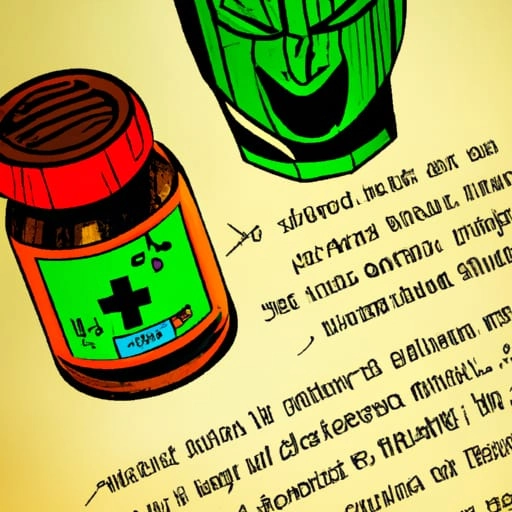
Best Nootropics for OCD: Conclusion
OCD is a mental disorder that is characterized by intrusive thoughts and compulsive behaviors. While there is no cure for OCD, there are several treatments that can help improve cognitive function and symptoms. You may have tried standard treatments like cognitive behavioral therapy and antidepressants and not had enough benefit from them. Understandably, you want to find something that brings relief.
It’s reasonable that you should want to try something else and it’s reasonable to try nootropics. They contain psychoactive substances the same and licensed medication does and for that reason they might work, for the same reason you must treat them with care and respect and research and experiment. If you begin to feel unwell or suffer side effects, it would be prudent to stop taking them. On the other hand, they might work better than anything you’ve tried before.
I wish you all the luck with reducing the symptoms of your obsessive-compulsive disorder
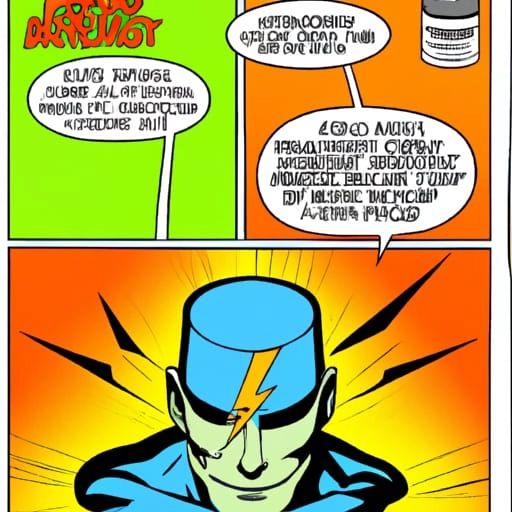
Scientific Studies
https://www.sciencedirect.com/science/article/abs/pii/S0022395608002379
https://pubmed.ncbi.nlm.nih.gov/28638200/
You May Find These Articles Interesting
5 Most Effective Antidepressants for Anxiety and Depression (and 3 you should avoid)
The Art, Science, and Magic of Prescribing Antidepressants


